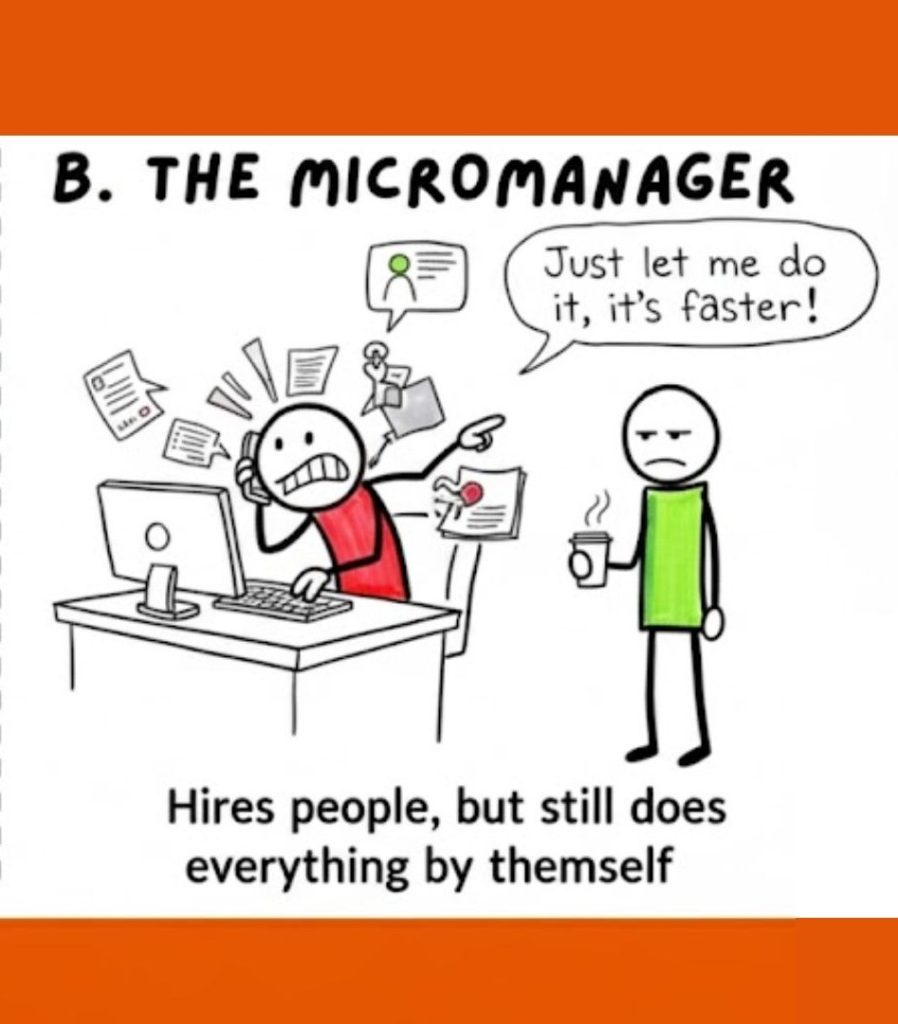There is an old saying that warns against being a “jack of all trades, master of none.” In the world of executive leadership, I believe this advice is backwards.
As a CEO, you must be a jack of all trades. You need a working knowledge of finance, law, code, marketing, and sales. However, you must only be a master of one thing: leading.
When founders begin the transition from “builder” to “executive,” they often struggle to find this balance. In my time scaling Bee Techy, I have seen founders fall into two distinct traps that stifle growth.
The Two Traps: The Ghost and The Micromanager
Scaling a company requires you to step back from the day-to-day production, but how far back should you go? Most get the distance wrong.
1. The “Ghost”

This founder hires people and immediately “gets out of the way” completely. They mistake abdication for delegation.
- The Risk: By checking out, they lose the pulse of the business. Standards slip, the culture drifts, and the team operates without a unified compass.
2. The “Micromanager”


This founder hires experts but still tries to do everything themselves. They treat their team as assistants rather than owners.
- The Risk: The founder becomes the bottleneck. The company can only move as fast as the founder’s personal energy allows, which is a recipe for burnout and stagnation.
A true leader is neither. A true leader points the team in the right direction and trusts them to own the outcome, all while remaining close enough to learn from them.
Why You Need “Jack of All Trades” Knowledge
You cannot effectively lead a department if you do not understand the fundamentals of what they do. You have to speak the language of your marketers, your salespeople, and your engineers.
This is not so you can do their job for them. It is so you can execute on three critical leadership functions:
1. Set a Realistic, Ambitious Vision
If you don’t understand the constraints of software development, you will promise features that are impossible to build. If you don’t understand marketing attribution, you will demand metrics that don’t matter. Generalist knowledge keeps your vision grounded in reality.
2. Hire the Right Experts
How do you know if a CTO candidate is actually good if you don’t know the basics of architecture? Without fundamental knowledge, you are liable to hire people who simply sound good in an interview but lack execution skills.
3. Ensure Strategic Alignment
You need to ask the right questions to ensure the work aligns with the strategy. If you don’t understand the work, you can’t pressure-test the logic. You become a rubber stamp rather than a strategic guide.
The Technical Founder’s Discipline
My background is in engineering. I can still get into the repository and code. The temptation to “fix it myself” is always there. But does that mean I jump into our engineers’ pull requests?
Absolutely not.
My expertise allows me to set a realistic vision for our tech stack and hire great engineers. After that, I trust them to be the masters.
If I step in and code, I am signaling that I don’t trust them. I am also neglecting my actual job, strategy and growth, to do work that I have already hired someone to do.
The Reverse Mentorship Model
The best CEOs are not the ones who teach their employees every action. They are the ones who let their employees teach them.
I let my HR team teach me about contract law and retention. I let my Marketing team teach me about campaign strategy. I let my SEO team teach me about keyword intent.
This approach offers two massive returns:
- It strengthens your strategy: Your decisions are informed by the deep expertise of your team.
- It empowers the team: When you ask an employee to teach you, you validate their expertise. You transform the dynamic from “Boss/Subordinate” to “Partner/Partner.”
Lead the Best
Your goal is not to be the smartest person in the room. If you are the smartest person in the room regarding every topic, you have failed to hire the right people.
Let your team strengthen your strategy with their expertise, just as you strengthen their work with your vision. My job isn’t to be the best coder in the company. My job is to lead the best.
Master the Art of Scaling
Leadership is about focus. While you focus on leading your team, let us handle the technical heavy lifting. From Staff Augmentation to full-scale product builds, we provide the experts you need to grow.
Explore the Bee Techy Knowledge Hub →
This article was originally published as a social media series. Click here to view the original discussion on LinkedIn and join the conversation.
